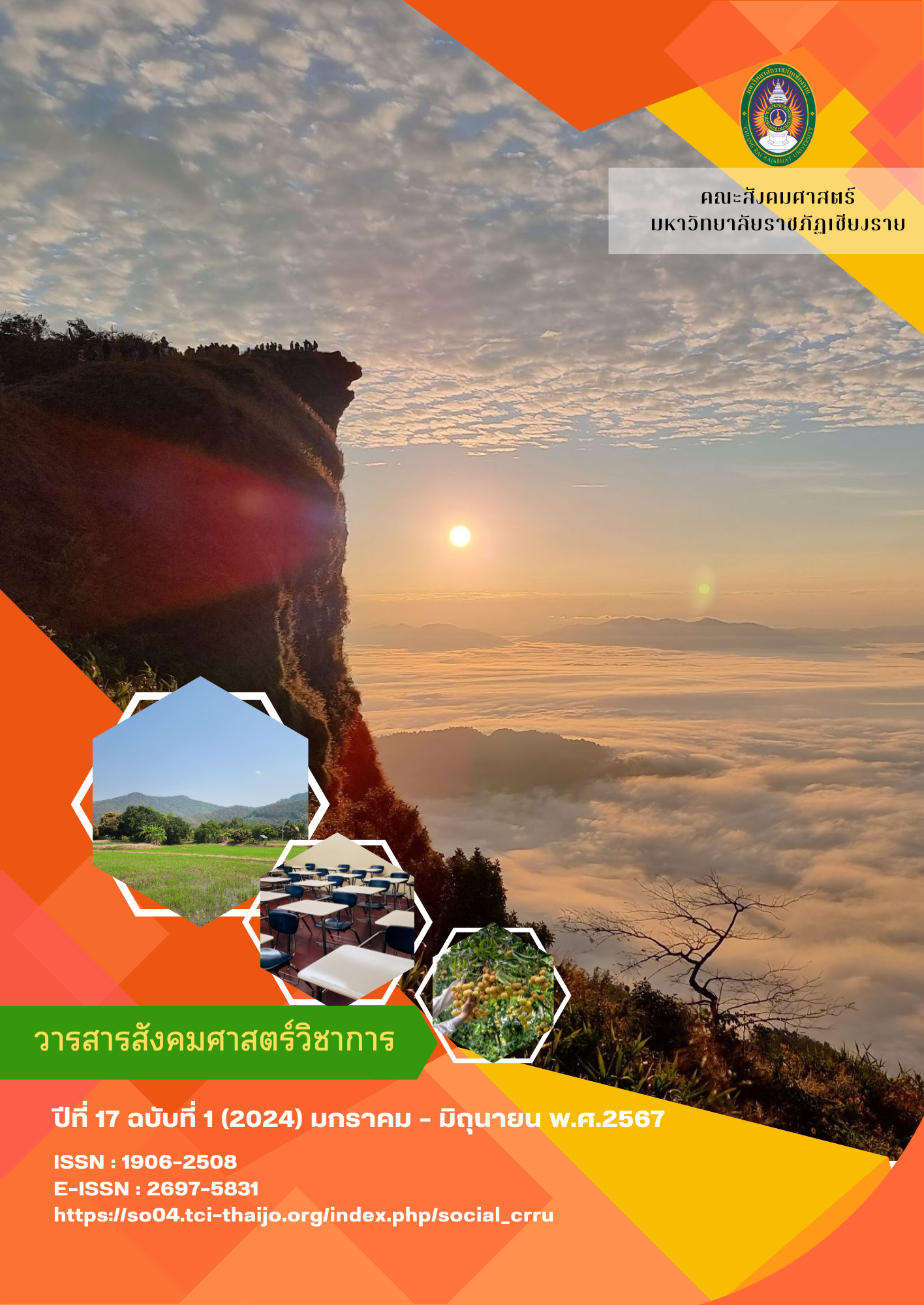The Zhuang of China are an Ethnic Group with an Ancient and Long-standing Language and Culture, Including the Period when the Zhuang and Thai People Migrated and Separated from Each Other A Case Study from Ancient Chinese Documents
Main Article Content
Abstract
This research topic asks whether or not China’s Zhuang ethnic group has a long history of language and culture? The following research is a documentary research that aims to: 1. To research whether or not China’s Zhuang ethnic group has a long history of language and culture. 2. To research the linguistic features of the ancient Chinese Zhuang people to determine if there is any practical sociocultural value in said research, and to search from the perspective of the Zhuang and Thai people sharing a common social origin, to see whether or not a new yet undiscovered historical basis can be found. The research methodology covers documentary and linguistic research. Content analysis methodology is utilized in the analysis of documentary and linguistic material, and descriptive analysis was implemented in the research results. 3. To determine the period during which the Zhuang and Tai peoples diverged and migrated from each other, using data from linguistics, documentary linguistics, and etymology recorded in ancient Chinese documents. This involves examining the information through the use of documentary research, documentary linguistics, philology, analytical methodology, and content analysis. The findings are presented using descriptive analysis, followed by a summary of the results.
The research results indicate a relationship between ancient Zhuang and the contemporary Thai language. It can be seen that 5,000-6,000 years ago, the Zhuang language had already become the language used for communication within the ethnic group, and also demonstrates the sheer length of their linguistic and cultural history. Research into ancient Zhuang linguistic culture helps facilitate a deeper understanding of the characteristics and knowledge of Zhuang culture. At the same time, the Zhuang vocabulary offers compelling linguistic proof of the shared ancestral origins between the Zhuang ethnic group and the Thai people of Thailand.
Article Details

This work is licensed under a Creative Commons Attribution-NonCommercial-NoDerivatives 4.0 International License.
รายละเอียดของลิขสิทธ์
References
A collation of “Buluotuo Scripture”. (n.d.). Nanning: Guangxi People’s Publishing House.
Compiled by the Codification Committee. (1993). Zhuang Encyclopedic Dictionary (Zhuangzu bai ke cidian). Nanning: Guangxi People’s Publishing House.
Fan, W. (1994). General History of China Book I (Zhongguo Tongshi Diyice). Beijing: People’s Publishing House.
Fan, H. (2000). A nation born with the same roots: Zhuang Thai ethnic origin and culture (Tong gen sheng de minzu: Zhuang Thai ge zu yuanyuan yu wenhua). Beijing: Guangming Daily Press.
Han, J. (2012). The Epic of Baeuqloegdoh (Buluotuo Shishi). Nanning: Guangxi People’s Publishing House.
Jiang, T. (2005). A study on the bronze drum of the Zhuang nationality (Zhuangzu tonggu yanjiu). Nanning: Guangxi Peoples Publishing house.
Kullavanich, P. (1986). Zhuang is a Dai ethnic group within the People’s Republic of China (Zhuang: Chonchattai nai sataranarat prachachon jeen). Faculty of Arts, Chulalongkorn University. (In Thai)
Li, P. (2008). The country of women on the banks of the Tuoniang River: The origin, current situation and trend of marriage of husbands of the Zhuang ethnic group in Guangxi and Yunnan border. (Tuoniangjiang pan nvren guo: Gui Dianbian Zhuangzu ou gui hunyin yuanyuan xianzhuang qushi)
Liang, T. (2000). Introduction to Zhuang culture (Zhuangzu Wenhua Gailun). Nanning: Guangxi Education Press.
Liu, Y. (1999). An on-the-spot Investigation into the Southernly Emigration of the Dai Race (Dai Zu nan qian kaocha shi lu). Kunming: Yunnan Nationalities Publishing House.
Sima, Q. (104BC. Han Dynasty). (1999). Records of the Historian (Shiji). Beijing: Zhonghua Shuju Publishing House.
Xu, S. (AD 121) (1963). Origin of Chinese Characters (Shuowen Jiezi). Beijing: Chung Hwa Book Company.
Yuan, K. (2017). Ancient Chinese mythology (Zhongguo Gudai Shenhua). Shanghai: East China Normal University Press.
Yuan, K. (2019). Translation of the Classic of Mountains and Seas (Shanhaijing Yizhu). Shanghai: East China Normal University Press.
Zhao, Z. (Ed.). (2013). The Book of Songs (Shi Jing). Beijing Wire-bound Bookstore.


